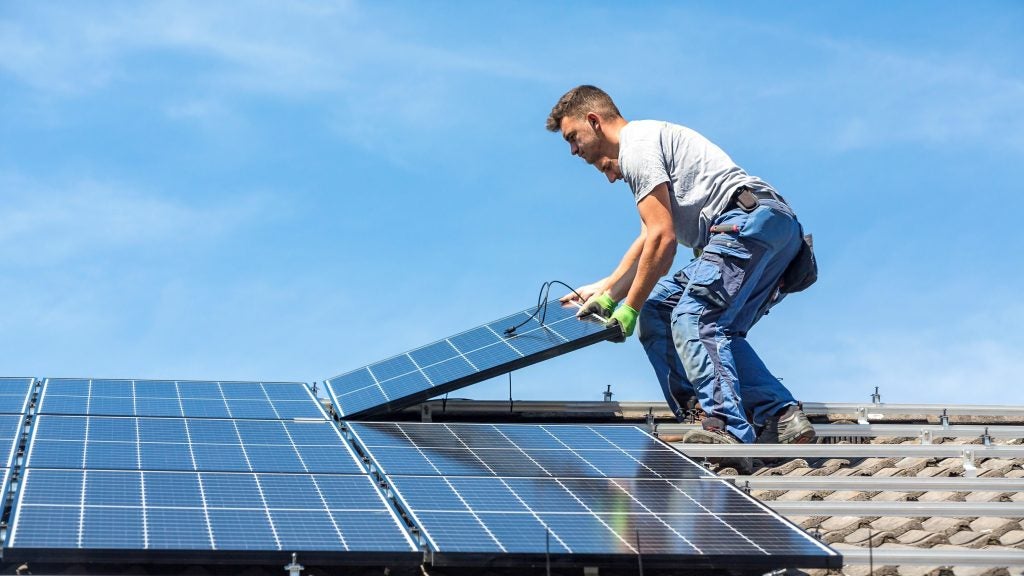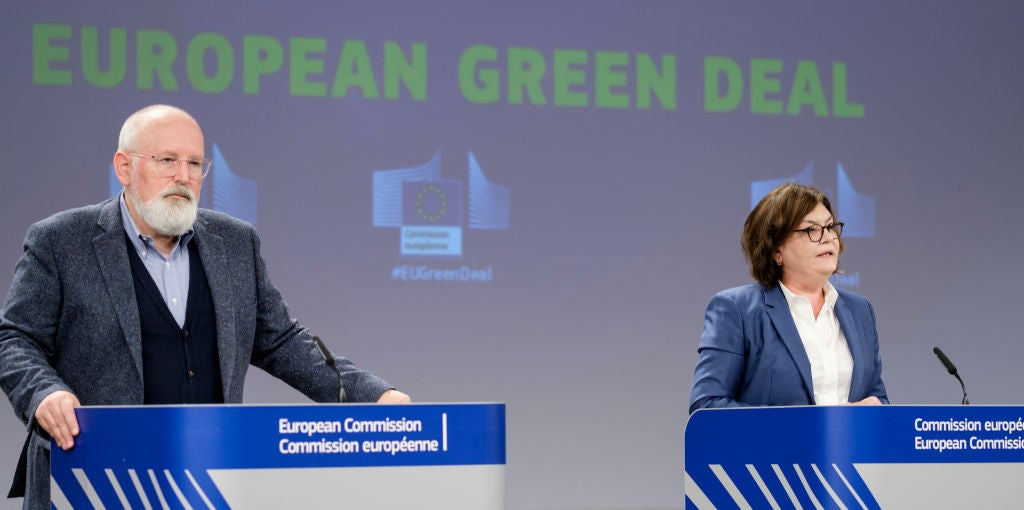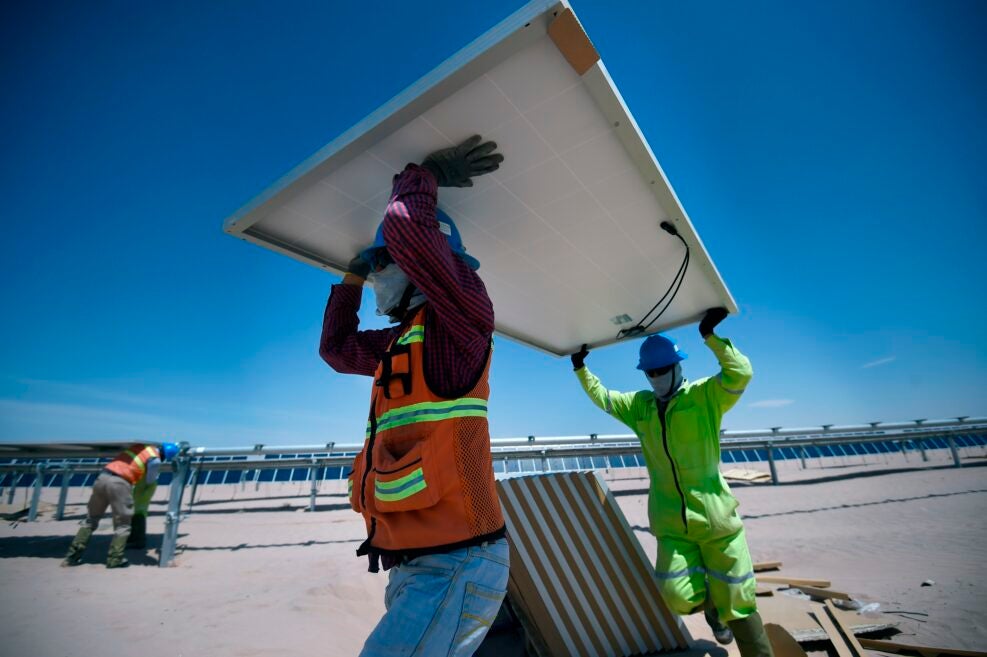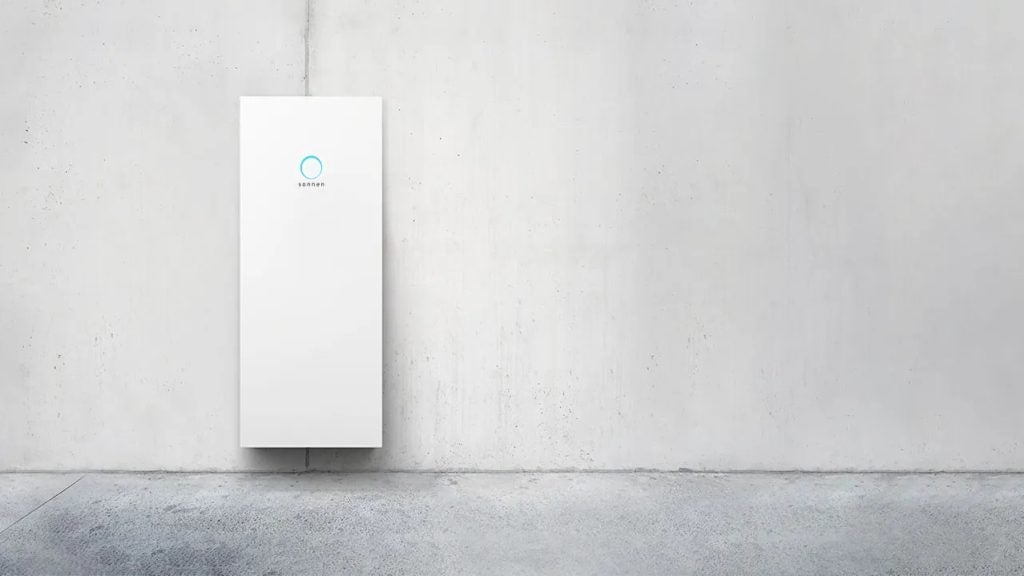The second-biggest hirer in solar worldwide, Germany's photovoltaics plans are entering the next phase.
The German federal government has approved a new policy package in an effort to reach the country’s ambitious 2030 solar deployment targets. Discussed by the Cabinet last week, the plans will enable the widespread introduction of photovoltaics, as they “remove obstacles and fight the bureaucratic thicket”, according to Robert Habeck, Federal Minister for Economic Affairs and Climate Protection.
As part of the 2023 Renewable Energy Sources Act, the German government established a target of 215GW installed solar capacity by 2030, more than a third of the total installation target for the European Union. This means that the annual rate of expansion will need to reach 22GW by 2026, requiring the rate of installation to triple from its 2022 figure of 7.5GW.
The approved plan will make several steps towards achieving this rapid expansion. In particular, it will streamline approvals, rather than leaving Germany's solar plans tangled in the slow and complex permitting processes that have hindered development previously. These obstacles were identified in the drafting process and purposefully eliminated in the legislation.
The package will allow retailers to cover more of their roofs with solar panels, as well as simplify the joint use of electricity from photovoltaic systems. A simplified grid connection system will be extended and access rights for renewable connections will be facilitated.
The package will also encourage solar panels in new spaces: some rural areas will become agrivoltaic farms, but the new category of “biodiversity PV” will keep the preservation of nature in mind by protecting moorland. Balconies will also become a key space for solar expansion, with “balcony power plants” easier to install as the plan makes it unnecessary to register them with the network operator.
Speaking last week, Habeck explained the significance of Germany's plan: "We need more speed and less bureaucracy in solar expansion and that is exactly what we are doing with the solar package… That's why we passed numerous new regulations in the Cabinet with the solar package today, which increase the number of extensions in the open space and on the roof as well as the participation of the citizens.”
Germany's focus on solar power is not new, and hiring trends point to a rapidly growing industry. Significantly, much of this growth has occurred over the last 12 months, and the upward trend looks set to continue as the new plans are implemented.
According to figures collected by GlobalData, Energy Monitor's parent company, Germany is now the second-biggest recruiter in solar energy, second only to the US. With 619 jobs recorded in July 2023, they are significantly above their closest competitor, the UK, with 376 jobs in the same month.
Filings data from German companies also demonstrate the country’s growing clean energy focus, with the terms "renewable" and "solar" both increasing significantly in frequency over recent years, according to GlobalData records.
Our signals coverage is powered by GlobalData’s Thematic Engine, which tags millions of data items across six alternative datasets — patents, jobs, deals, company filings, social media mentions and news — to themes, sectors and companies. These signals enhance our predictive capabilities, helping us to identify the most disruptive threats across each of the sectors we cover and the companies best placed to succeed.














